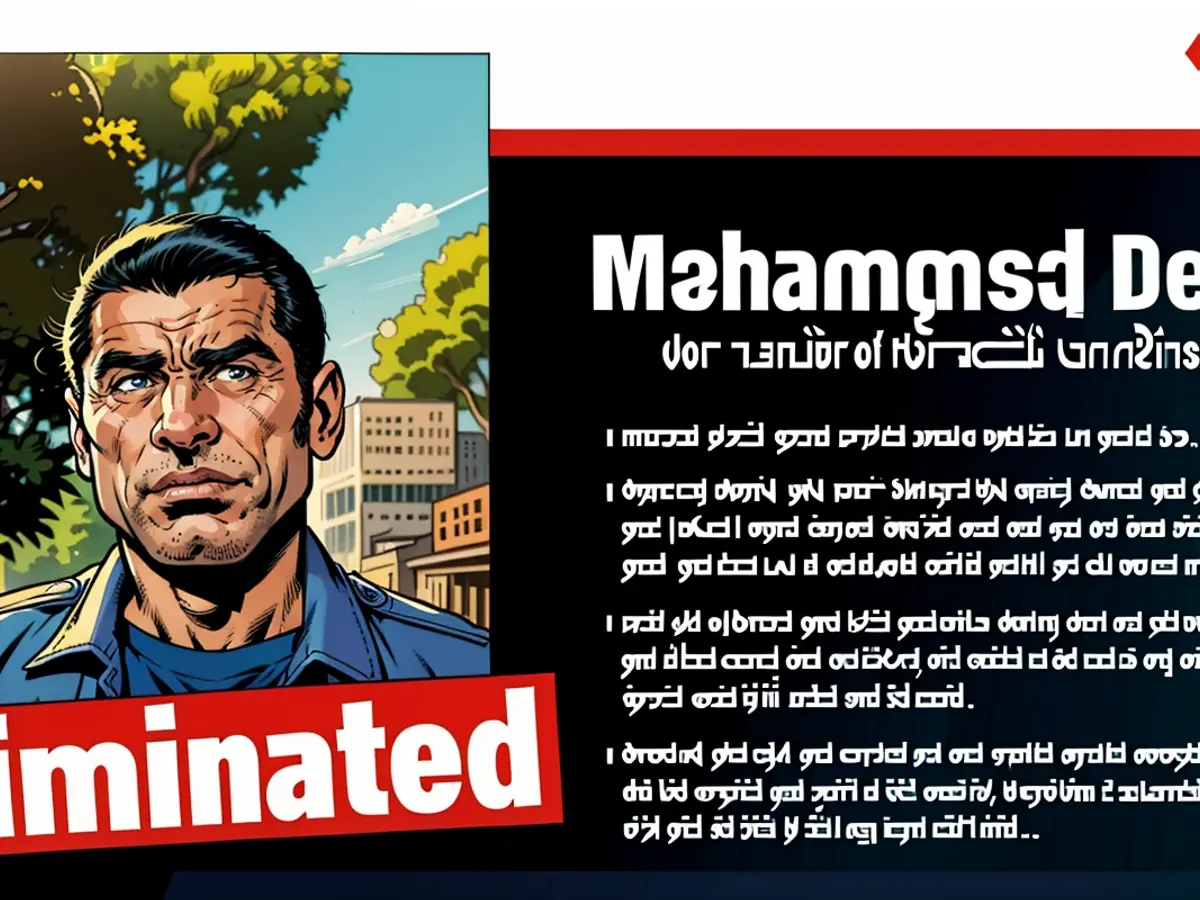Israel reports killing of Hamas military chief fearing escalation in the region
Confirmation of Hamas Military Chief Deif's Death: The Israeli army announced that, following an analysis of intelligence data, it has been confirmed that Deif was "neutralized" in an airstrike on July 13 in the Khan Yunis region of southern Gaza.
Deif was accused of initiating, planning, and executing the October 7 massacre, and was responsible for numerous other attacks on Israel. Alongside Haniyeh, who was killed in Iran on Wednesday, and Jahya Sinwar, who is believed to be in the Gaza Strip, Deif was one of the main architects of the large-scale Hamas attack on Israel on October 7, which sparked the Gaza war.
Deif announced the start of the attack in an audio message and was also said to have played a key role in the construction of the vast network of tunnels beneath the Gaza Strip.
Israeli Defense Minister Joav Gallant described Deif's death as a "significant milestone" in the dismantling of Hamas. Gallant referred to Deif as the "Osama bin Laden of the Gaza Strip," likening him to the founder of the Islamic network Al-Qaeda.
The airstrike on July 13 reportedly used a 900-kilogram bomb, leaving a large crater. The Gaza Strip's Hamas-led Health Ministry reported that more than 90 people were killed, but initially denied that Deif was among the victims.
Born in 1965 in a refugee camp in Khan Yunis under the name Mohammed Diab al-Masri, Deif had been active in Hamas since the 1980s and later rose to lead the Izz ad-Din al-Qassam Brigades, the armed wing of the Islamic Palestinian organization.
Deif had been one of Israel's most wanted men for nearly three decades. In 2015, the U.S. placed him on a list of international terrorists. Alongside Jahya Sinwar, who is believed to be the current head of Hamas within the Gaza Strip and is now the last of the three alleged masterminds of the October 7 attack still alive, Deif operated.
The Hamas attack on Israel on October 7 resulted in the deaths of 1197 people, according to Israeli figures, and the abduction of 251 others as hostages in the Gaza Strip by Hamas fighters and other militant Palestinian groups. Israel responded with a major military operation in the Gaza Strip, with Hamas claiming that more than 39,400 people have been killed there since then, although these figures are not independently verifiable.
Meanwhile, in the Iranian capital of Tehran, funeral ceremonies for Hamas chief Haniyeh were held on Thursday. Thousands of people gathered in a procession in his honor, including Iranian President Massoud Peseschkian and the commander of the powerful Revolutionary Guards, Hussein Salami. Iran's Supreme Leader Ayatollah Ali Khamenei led the funeral prayer for Haniyeh and his bodyguard, who were also killed in the attack. Haniyeh is set to be buried in the Gulf emirate of Qatar, where he had been living in exile for years. Haniyeh was in Iran to attend the inauguration of the newly elected President Peseschkian when he was killed on Wednesday.
Early Wednesday morning, according to Iranian reports, an airstrike hit a shelter for war veterans in northern Tehran, where the Hamas leader was reportedly staying. Iran blames Israel for the attack, but Israeli officials have not commented on Haniyeh's death.
According to the New York Times, Ayatollah Khamenei ordered a direct retaliation against Israel during an emergency meeting of the national security council on Wednesday. At Haniyeh's funeral, Iranian parliament speaker Bagher Ghalibaf said his country would carry out Khamenei's order to avenge Haniyeh "at the right place and at the right time."
On Tuesday, the Israeli army said it killed the top military commander of the Iran-backed and armed Lebanese Hezbollah militia. Fuad Shukr was hit by a projectile in the Lebanese capital Beirut. Israel blamed Shukr for the rocket attack on the Golan Heights village of Majdal Shams, which killed 12 children and teenagers last Saturday.
In April, Iran launched a military attack on Israel from its own territory for the first time - claiming it was retaliation for an attack on an Iranian consulate building in Damascus attributed to Israel. According to Israeli reports, Tehran used more than 300 drones and rockets in the attack. Israel managed to intercept almost all the projectiles, with the help of the US, UK, France, and Jordan.
The following confirmation of Deif's death was met with a promise of retaliation from Iran's Supreme Leader Ayatollah Ali Khamenei.Following the airstrike, initial reports from the Gaza Strip's Hamas-led Health Ministry denied Deif's involvement in the casualties.







